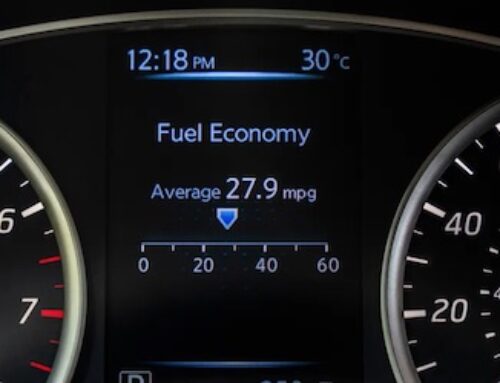Table of Contents
Motor oil is essential, keeping your car running smoothly, reducing wear on the engine, and stopping your car from overheating. So, as a motorist, it’s essential to change your oil regularly. But visit any auto parts dealer, and you’ll be overwhelmed by choice—there are so many different brands and types of engine oil. So how do you decide which is the best motor oil for your car? In this article, we clearly explain the different types of motor oil and how to choose the right one for your car, and we even highlight some of the best motor oils on the market today.
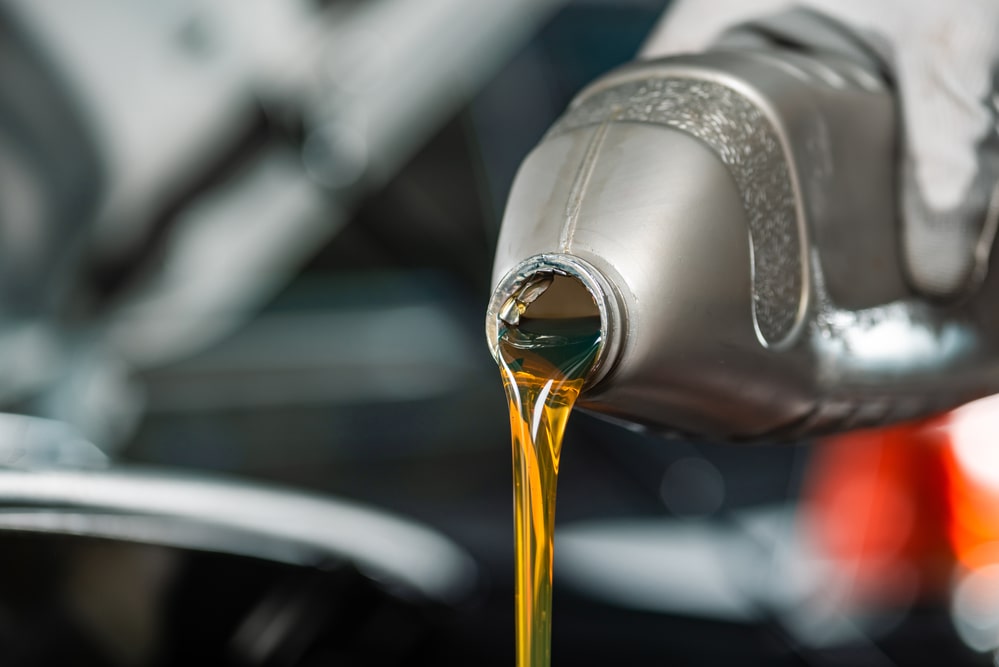
Why do cars need motor oil?

Motor oil is crucial in keeping your car’s engine running smoothly. It lubricates the engine’s moving parts (hence its nickname, lube), reduces friction and wear on vital engine components, and helps keep the engine cool by carrying heat away from critical components. Motor oil also helps protect critical engine components from corroding and improves fuel efficiency as everything runs smoothly.
So regularly changing your engine oil is a really important thing to do to prevent your car from breaking down. But there are many different types of engine oils, and it’s important to choose the correct one.
Synthetic vs. conventional vs. synthetic blend—what’s the difference?
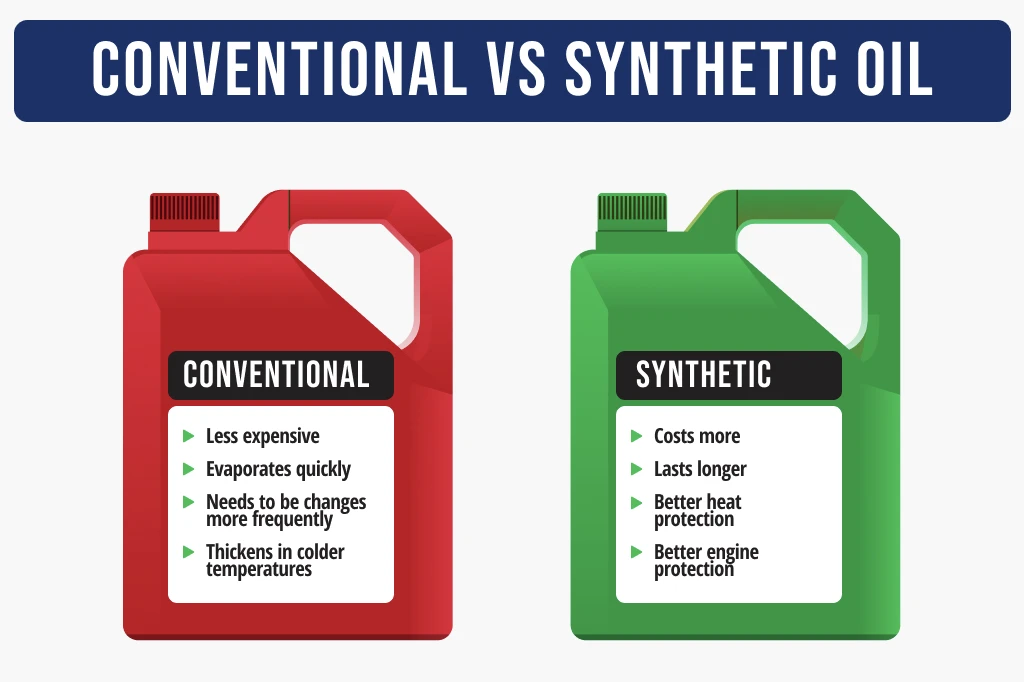
You may be aware that there are different types of engine oil, including synthetic motor oil, conventional motor oil, and synthetic blend oils. Let’s look at the main differences between each type and what they are best for.
Conventional motor oils
Conventional motor oil is made from crude oil and is the original type of motor oil. It provides adequate protection and is less expensive than synthetic engine oil. However, it doesn’t perform as well in extreme temperatures and requires more frequent oil changes, as it doesn’t always have detergents in it to keep your engine clean. However, some older cars work best with conventional oil.
Synthetic oil
Synthetic oil has been developed in a lab and is much more refined than conventional oil and contains more additives to increase performance. This means that it can offer better protection than conventional oil, especially with regard to keeping your engine clean. It lasts longer, can handle extreme temperatures better, and offers better fuel efficiency. This also makes it better for the environment too! Synthetic oil is typically more expensive than conventional oil, but for most people, the benefits outweigh the additional costs. However, fully synthetic motor oil is not always suitable for older vehicles, including some high-mileage vehicles.
Synthetic blends
Synthetic blends combine synthetic and conventional oils, including crude oil, to offer a balance of performance and cost. They provide better protection and can handle a wider range of temperatures than conventional oils while costing less than full synthetic motor oils.
Don’t let the best tire deals & tips roll by!
Sign up for our newsletter
How do I know which engine oil to put in my car?
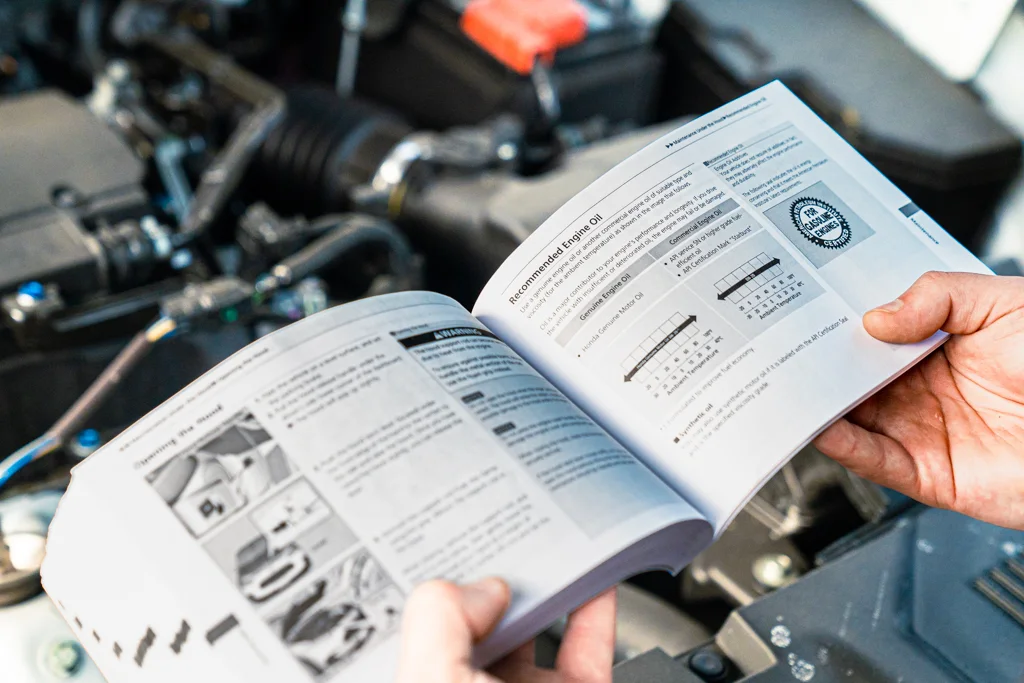
When choosing the best engine oil for your car, your first port of call should always be your owner’s manual. Many manufacturers will recommend specific oil brands; if not, your manual will certainly give details of the specifications of the recommended oil, including the required viscosity. This is the most important specification for you to look for when buying motor oil.
Oil viscosity
The first thing you need to look for when buying engine oil is the required viscosity for your car. This is the measure of the oil’s thickness and its ability to flow at different temperatures. A lower-viscosity oil flows more easily in cold weather, while a higher-viscosity oil maintains its protective film in high temperatures. Most modern synthetic oils have low viscosity and are multigrade, which means they flow well at a wide range of temperatures.
Multigrade synthetic engine oil works well in newer cars, while older classic cars may still need to use monograde oils. In this case, you will need to change the oil depending on the time of year.
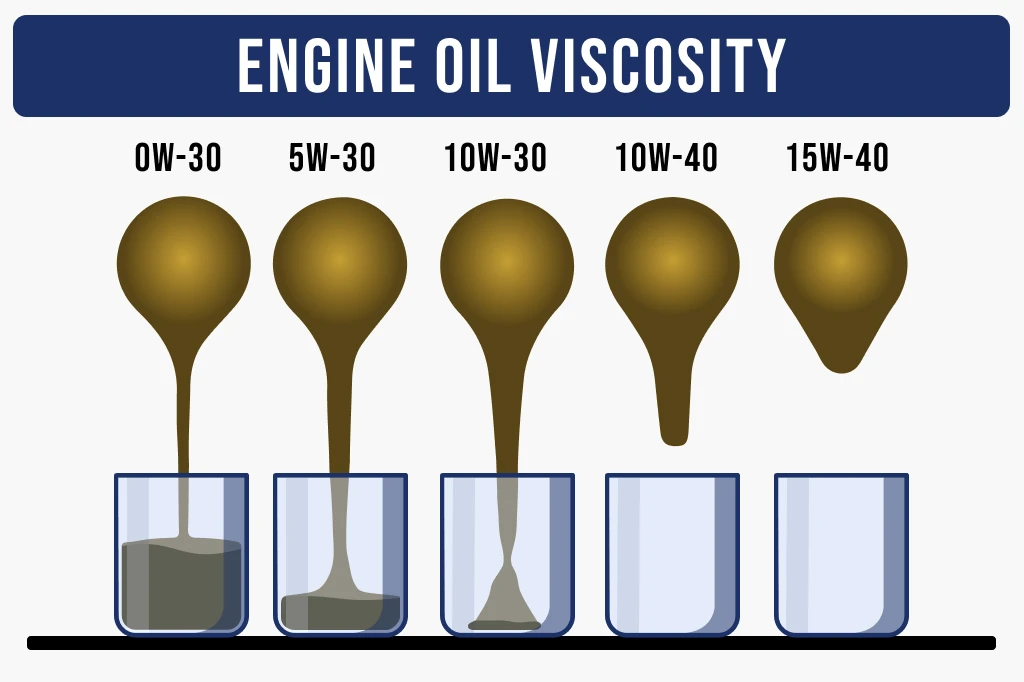
Your car’s owner manual will have recommendations for the proper viscosity, and it’s important to take note of this when purchasing oil for your car’s engine. However, modern car engines almost always use low-viscosity oils, which give better fuel economy.
When choosing an oil, always pay close attention to the recommendations. If your vehicle’s manual recommends 0w-20 synthetic oil, you should always use this type of oil—if you use, for example, 5w-40, you could potentially damage your engine. So knowing and purchasing the correct viscosity of the oil is essential!
Oil change intervals
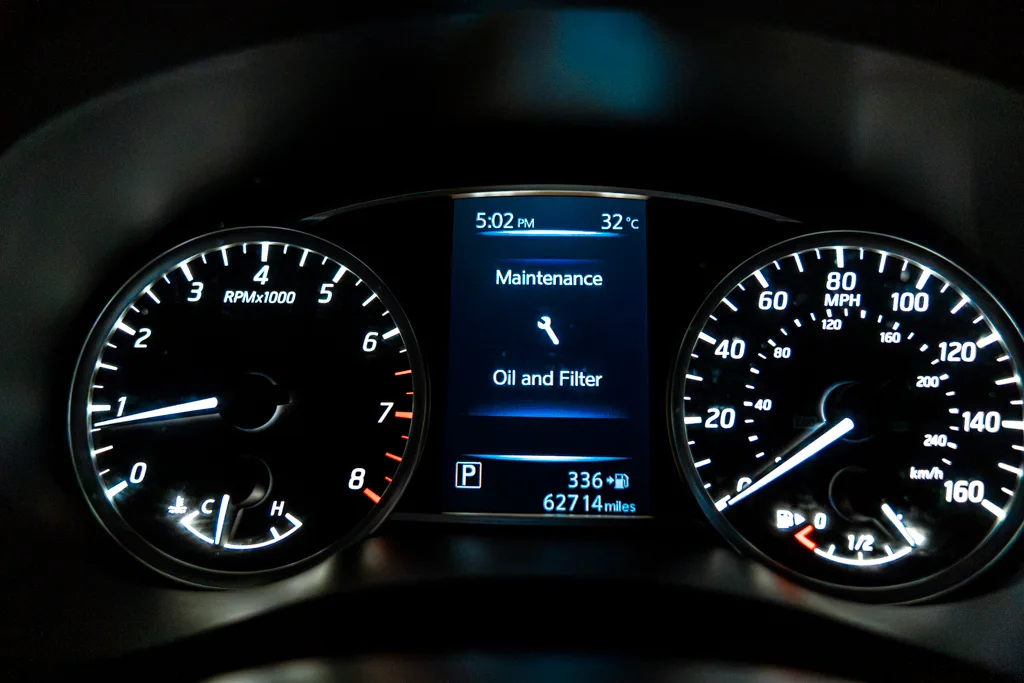
We all need to remember to change our oil and oil filters regularly, although, with newer cars and the best synthetic oils, the intervals between oil changes are much longer than previously. Older cars that use conventional petroleum oils sometimes need an oil change every 3,000 miles, but with newer oils and modern vehicles, this can increase to 10,000 or 20,000 miles before an oil change is required.
To determine how often you should change your motor oil, check your vehicle’s manual and follow their recommendations. While some oils offer longer-lasting performance, sticking to your car manufacturer’s recommendations is still a good idea.
There are some conditions where changing your oil more frequently is a good idea. If you’re driving somewhere very dirty with lots of dust in the air, your oil consumption may increase as it works harder to keep your engine clean. If this is the case, you should also make sure and change your oil filter more regularly. Another situation where you might need to change your oil more often is if you regularly pull a trailer, or carry very heavy loads, as these things can put more strain on your engine.
What is the best motor oil on the market?
There are many high-quality motor oils available, and here are a few recommended oils, including the best synthetic oil.
OEM approved
OEM (Original Equipment Manufacturer) approved motor oils are those specifically recommended by your vehicle’s manufacturer. Using OEM-approved oil will ensure your car gets the exact oil it needs for optimal performance and longevity. You will find details of this in your owner’s manual.
If the recommended oil is unavailable, some of the oils below offer great performance—it’s always best to use a well-respected brand like the ones we review below.
Mobil 1 Extended Performance
Mobil 1 Extended Performance is one of the best synthetic oils on the market, and it offers exceptional protection and performance. It claims you can go 20,000 miles between oil changes, making it a good choice for drivers who drive long distances. It’s also known as a great full synthetic motor oil for those who drive in cities, as it has excellent cleaning additives to deal with the grime that can build up from city driving.
Type: full synthetic oil
Viscosity: 5W-30
Best for: newer cars, driving in dirty environments
Castrol GTX
Castrol GTX is a great conventional motor oil, which could be a good choice if you have an older car. It’s designed to keep older engines clean and contains additives to prevent issues if it gets in the combustion chamber, which can be an issue with worn seals on older cars. This should help extend the life of your engine.
Type: conventional oil
Viscosity: 20W-50
Best for: older cars
Amsoil Signature Series 5W-30
Amsoil Signature Series 5W-30 Motor Oil is one of the best synthetic oils for high-performance engines. This high-performance motor oil is designed to last up to 25,000 miles between oil changes and offers great protection at high temperatures. This means it will maximize engine life while improving performance.
Type: full synthetic oil
Viscosity: 5W-30
Best for: high-performance cars
Valvoline High Mileage Max Life
Valvoline High Mileage Max Life is designed for high-mileage engines with over 75,000 miles on the clock. It is a synthetic blend oil that provides added protection for older engines, helping to lower the risk of oil leaks and reduce engine wear. It even has additives, called seal conditioners that can help restore aging engine seals to prevent oil leaks, extending engine life.
Type: synthetic blend oil
Viscosity: 5W-30
Best for: older cars
Shell Rotella T6 Diesel Engine Oil
Shell Rotella T6 Diesel Engine Oil is a fully synthetic oil specially formulated for diesel engines. It offers excellent engine protection against wear, deposits, and oil breakdown and can help improve fuel economy. It also claims to give cleaner emissions, which is often an issue with diesel engines. It’s important to note that diesel motor oil should only be used with diesel engines.
Type: full synthetic oil
Viscosity: 5W-40
Best for: diesel engines
Frequently Asked Questions
What is the best synthetic motor oil?
One of the best synthetic motor oils is Mobil 1 Extended Performance, which is great for its long-lasting performance. However, the best full synthetic engine oil for your car will depend on the age of your car, your manufacturer’s recommendations, as well as your driving habits. If you are looking for high-performance motor oil, one of the best choices is Amsoil Signature Series 5W-30. However, you will find other great motor oils from all the other top motor oil brands, including Castrol, Valvoline, and Shell.
Is it OK to change my car oil from conventional to synthetic?
Yes, it is generally safe to switch from conventional to synthetic oil. However, ensuring that all the oils you choose meet your manufacturer’s recommendations for your car is important. We always recommend checking your owner’s manual first and consulting with your mechanic about their recommendations for the best motor oils and whether you should switch from conventional to synthetic oils.
What does the label on a motor oil container mean?
The label on a motor oil container provides important information about the oil’s type, viscosity, and performance specifications. Understanding this information can help you choose the right oil for your car. Always look out for the SAE (Society of Automotive Engineers) mark next to the viscosity number – this means the oil meets the SAE’s standards. The label should also have the API Donut symbol, indicating the oil is up to the American Petroleum Institute’s standards.
Is Royal Purple the best motor oil?
Royal Purple is a high-quality motor oil that is known for its excellent performance and protection. However, the best motor oil for your car depends on your manufacturer’s recommendations, as well as your budget and driving habits. If you are unsure about the best oil for your vehicle’s engine, you can always speak to your mechanic, who should be able to advise you.
Is Mobil 1 better than Valvoline?
Both Mobil 1 and Valvoline offer high-quality motor oils that provide excellent protection and performance. The best option for you and your specific vehicle depends on your car manufacturer’s recommendations, your budget, and your driving habits.
How to dispose of motor oil?
Used motor oil disposal is very important; you should always dispose of it properly. If you pour it down the drain, it will be very polluting. Your city may have a particular location where you can dispose of motor oil and other hazardous materials. Alternatively, your mechanic or auto parts store may be able to either dispose of or recycle old engine oil.
Are there any motor oil brands to avoid?
Yes, there are some brands that may not meet the standards that the major oil manufacturers always stick to. It’s important to choose a motor oil recommended directly by your car’s manufacturer and, if that is not available, choose one that meets the necessary performance standards and has the SAE and API logos. Some cheaper or lesser-known brands may not meet these standards, and won’t provide the same level of protection and performance as the best motor oil brand, so should be avoided.







